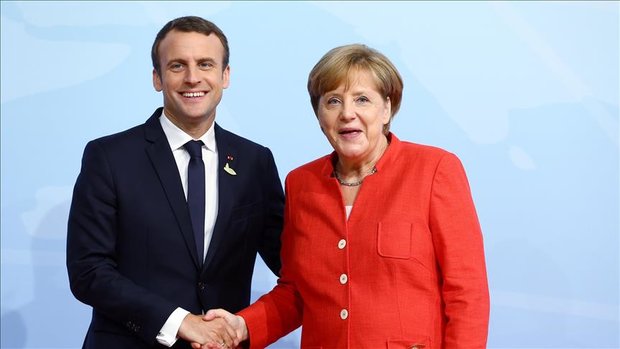Since Emmanuel Macron's presence in the Elysee Palace, German and French authorities tried to hide their economic disputes, but in fact these differences remain strong. The fact is that Angela Merkel continues to insist on austerity policies in Europe, and in particular, within the borders of the EU, while Macron believes in economic reforms in the Eurozone.
Over the past years, the differences between Berlin and Paris have been obvious not only in the economics, but also in the field of foreign policy. During the presidency of Hollande, and in the course of condemning the Syrian government for the use of chemical weapons (a false claim by the Western governments), the German government declared its opposition to any military strike against Syria.
However, French President, Francois Hollande, didn't consider such an attack as impossible, and he emphasized the participation of his country in this attack. This was while Angela Merkel's government has said that Berlin sees no reason to intervene in Syria.
The statements were made at a time when Francois Hollande, was planning a military intervention in Syria in case of the United Nations Security Council's agreement. At this time, the Macron administration has also adopted similar positions towards the Syrian people and government. He continues to emphasize the alliance with the United States in Syria. Of course, the announcement of the withdrawal of US troops from Syria hit Macron hard.
Berlin and Paris are currently taking two different approaches in different issues. Although Merkel has consistently stated that she agrees with Emmanuel Macron about the economic crisis in Europe and that the two countries will work together to solve the current financial and political crises in Europe, but the reality remains the other way around. The French president believes his plans are in contradiction with Merkel's economic plans, and Merkel had to face lots of problems since Macron's presence in power.
Anyhow, we should say that they both agree that their adopted policies has terribly failed, and that they weren’t successful in resolving the problems raising inside the EU borders, and in their own countries. Merkel's austerity policies hasn't worked, and Macron's economic reforms weren't accepted even by the French, let alone by other European citizens! The "yellow vests" protest well indicate this.
Merkel has announced that she will step down of her post in 2021. As for Macron, he isn't in a good position in the polls conducted, and the results show that his popularity has fallen by about 22 percent. The same thing has led many to doubt Macron's reelection in France next general elections. Many political analysts in France believe that Macron's fate would be no better than Sarkozy or Hollande, and that he's going to leave the Elysee palace soon.
Undoubtedly, in the near future, we will see an intensification of the disagreements between Berlin and Paris over current issues and crises in the international system. Besides, the existing disagreements between Angela Merkel and Emmanuel Macron will remain strong over the European financial crisis, although they prefer not to speak about it.
In the political and economic relations of Berlin and Paris, Merkel and Macron try, in every possible way, to challenge each other's economic and political decisions. The conflicts in the relations between Berlin and Paris is a clear example of the crisis that has spread all of Europe, and has affected the political and economic alliance of the EU member states. This process isn't going to stop, on the contrary, it's going to be intensified as the public discontents increase.
MNA/TT
